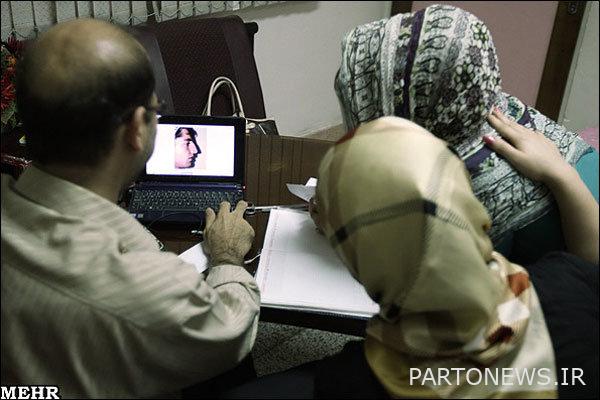The effect of social networks on eating disorders and body dissatisfaction – Mehr news agency Iran and world’s news

According to Mehr News Agency, Zeinab Mosaly, a sociologist and researcher in the social field, discussed the effect of social networks on eating disorders and body dissatisfaction in a note, the details of which are as follows.
Now it’s easier than ever to follow models and celebrities every day through social media.
Celebrities look glamorous every day and what they do can cause others, especially women who look up to them, to try and use any means to look like them, resulting in plastic surgery and Self-esteem problems increase.
Increasing use of social media in today’s society can have different effects on body image and cause eating disorders in many people. Research clearly shows that media exposure leads to body dissatisfaction and disordered eating.
Unfortunately, social media shapes our concept of beauty. With constant exposure to images published on the Internet, it is clear that subjectively, comparisons with people and perceptions of the body are formed. It is estimated that there are 3.6 billion users worldwide on social media and networks, so the negative and positive effects of communication with social media users should be considered.
A negative body image can create unrealistic expectations of how your body looks and can lead to unhealthy eating behaviors and disordered eating. Studies have found a relationship between time spent on social media and negative body image. This correlation was especially true when participants searched for and followed appearance-related content, such as a fitness trainer or model’s Instagram accounts. For example, Facebook’s internal research found that out of three teenage girls who already struggled with body image issues, the Instagram app made them feel worse. Publicly, however, the company and the developers of many similar apps have consistently downplayed any harmful effects on users’ body image.
Most teenagers in different countries have faced a serious eating disorder due to following Instagram models, which has progressed to the stage of avoiding any kind of water and food.
In some countries, such as France, the display of bone models was banned, because deaths from feeling fat syndrome among teenagers and young adults continued so much that the statistics of deaths from not eating attracted public attention. This is despite the fact that after changing the mannequin display policies, Karl Lagerfeld criticized this issue and demanded the use of bone models!
Social media images are full of people presenting the best version of themselves. Social media can then damage your body image by constantly exposing yourself to the ideal body type and lead to constant comparison of yourself to unrealistic standards.
Additionally, Photoshop and filters are readily available for users who play with unrealistic body image. The number of people who publish edited pictures of themselves is so great that some software has been produced to identify the edits so that people cannot hide the truth.
But still, even without the use of edits, people with ideal body types are not lacking in social networks. Various studies show that in many countries, the published images of modeling bodies have had a negative effect on the accepted body image, and even despite the lack of genetic compatibility to achieve what the models are, the lack of diversity has led to depression. .
It is important to explore ways to use social media in a positive way to avoid negative body image. If you feel bad after using social media, it’s important to take a break from social media. Also, check out who you follow on social media and unfollow accounts that don’t make you feel good. Instead, focus on accounts, people, and images that boost your self-esteem. Follow accounts that promote the positivity of a variety of bodies that don’t conform to society’s set beauty standards.
Finding positive body image accounts and joining support groups can help change your mindset about the ideal body image set by society. Additionally, you can use your social media to support positive body talk. Join the media, retailers, advertisers and celebrity product advocates who celebrate and promote natural looks, healthy body sizes and diverse body shapes, you can take a stand and refrain from reading, viewing or listening to the media or buying the products advertised. that promote a healthy and diverse body image.
References:
Festinger, L. (1954). A theory of social comparison processes. Human Relations, 7(2), 117-140.
Stieger, S., Graf, HM, Riegler, SP, Biebl, S., & Swami, V. (2022). Engagement with social media content results in lower appearance satisfaction: An experience sampling study using a wrist-worn wearable and a physical analogue scale. Body Image, 43, 232-243

